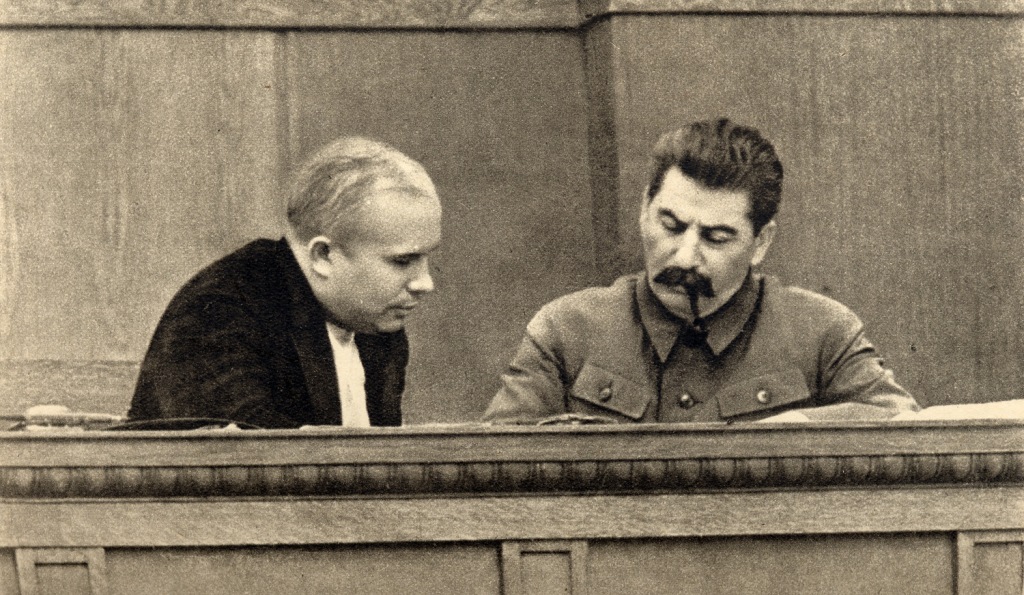The fear-besotted US was “in danger once again” The Nation warned, “of being left alone at the station as Lenin’s locomotive of history goes racing toward the future.”
Richard Kreitner and The Almanac
Joseph Stalin and Nikita Khrushchev at the Kremlin in 1936. Photo via Wikimedia Commons.
Nikita Khrushchev’s secret speech on this day in 1956 proved a turning point in the history of Soviet Communism; in it, the new leader rejected the cult of personality that had developed around his predecessor, Josef Stalin, and the murderous purges he had ordered in the late 1930s and into the 1950s. Reportedly, some of the Soviet leaders attending the speech became ill while listening to it. The text circulated in Eastern Europe in the spring of 1956 and was published in newspapers around the world in the beginning of June. In this editorial, “The Renunciation of Infallibility” (June 16, 1956), The Nation saluted the world-historical importance of the speech and only wished the defenders of orthodoxy in the so-called free world would recognize it, too. You might say that fifty-nine years, and many crimes and cults of personality later, we still await a Khrushchev-like speech of our own.
The Soviet leaders may be blackguards and rascals, but they are not fools. They know that there is a logic in words. They know, too, that the indictment cannot be rescinded any more than those who read it can be told to forget it. The sweep and vigor of the attack can hardly fail to shake the convictions of “hard core” or orthodox Communists the world over. Therefore it must have been intended as a piece of major ideological surgery; nothing less would justify the risks involved….
The ultimate heresy that the leaders of any orthodoxy can commit is to renounce, even in a limited fashion and for a special purpose, the principle of infallibility. But in this case the gamble is worthwhile, and the consequences, in the long run, could prove to be revolutionary. By acting as though the only meaning of Khrushchev’s speech was that the State Department had finally managed to score a propaganda coup on the Soviets by releasing it, we are in danger once again of being left alone at the station as Lenin’s locomotive of history goes racing toward the future.
To mark The Nation’s 150th anniversary, every morning this year The Almanac will highlight something that happened that day in history and how The Nation covered it. Get The Almanac every day (or every week) by signing up to the e-mail newsletter.
Richard KreitnerTwitterRichard Kreitner is a contributing writer and the author of Break It Up: Secession, Division, and the Secret History of America's Imperfect Union. His writings are at richardkreitner.com.
The AlmanacToday in history—and how The Nation covered it.